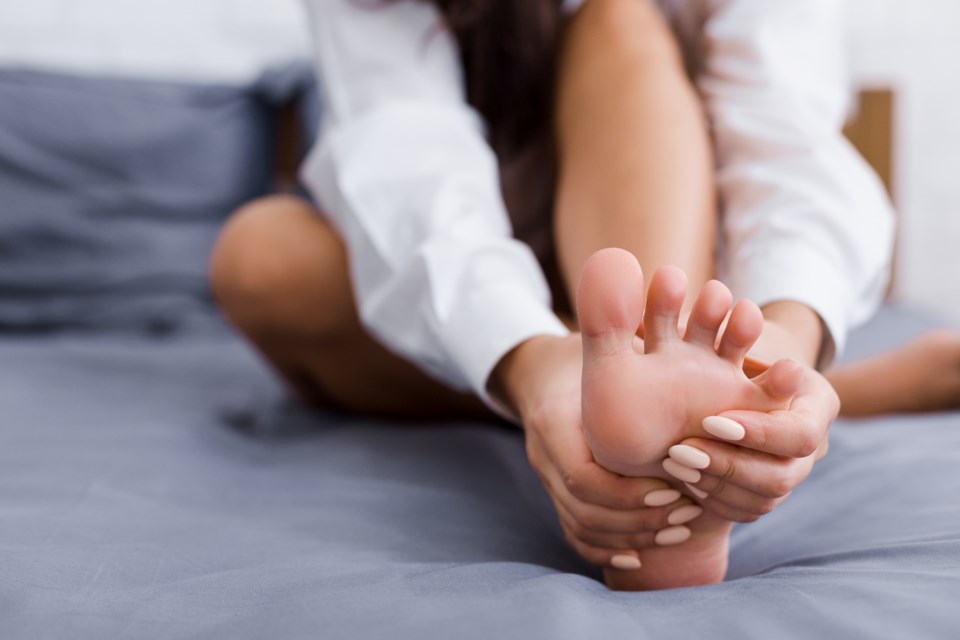Plantar Fasciitis is the most common source of heel pain and it hurts! The problem stems from the Plantar Fascia, which is a ligament in the foot that connects the toes with the heel bone and supports the arch of the foot. When this ligament is strained, it can cause pain and inflammation.
Plantar Fasciitis is very common
According to Meghan Knox, the Clinic Manager of BioPed’s Guelph location and a Canadian Certified Pedorthist, the problem can be very painful. “It is a very common condition that a lot of people unfortunately develop and it can cause excruciating pain for some people,” she says. “The most common cause occurs from overuse of foot mechanics that causes too much strain on the planter fascia which can then cause damage to the area over a prolonged period of time. Planter Fasciitis is an extremely common heel condition and we treat it on a regular basis.”
People can develop the condition by spending a lot of time on their feet or by walking barefoot on hard surfaces. Runners often suffer from it as do people with high or flat arches. Poor footwear can also make the problem worse.
“We actually have had a lot of people with who started working from home during the pandemic suffering from heel pain. They may have the same level of activity as before, but they are on tile floors in bare feet instead of in shoes or footwear at the office,” says Meghan. “The same thing can also happen when someone moves from a home with wood floors to a home with tile floors.”
Treatments are available
The good news is that people don’t have to suffer through foot pain. There are a few different types of treatments available for Plantar Fasciitis. Custom orthotics are commonly used to treat this condition, but night splints or a compression sleeve may be suggested. Consulting with a Pedorthist (foot care specialist) for an assessment and diagnosis is a good first step.
“There’s so much that we can offer to be able to help,” explains Meghan. “Custom orthotics will help to fix the biomechanical conditional that can be causing the overuse strain. We can also help with some education. Stretching and icing can help as well and possibly physiotherapy. In very severe cases where someone has tried a lot of things and nothing is helping, a cortisone injection may be indicated.”
BioPed offers free lower limb assessments for a variety of conditions. Anyone who is suffering from heel or foot pain can book an appointment with one of their Canadian Certified Pedorthists. For more information, call (519) 821-7310 or visit them in person at 102 Wyndham Street North in Guelph.
